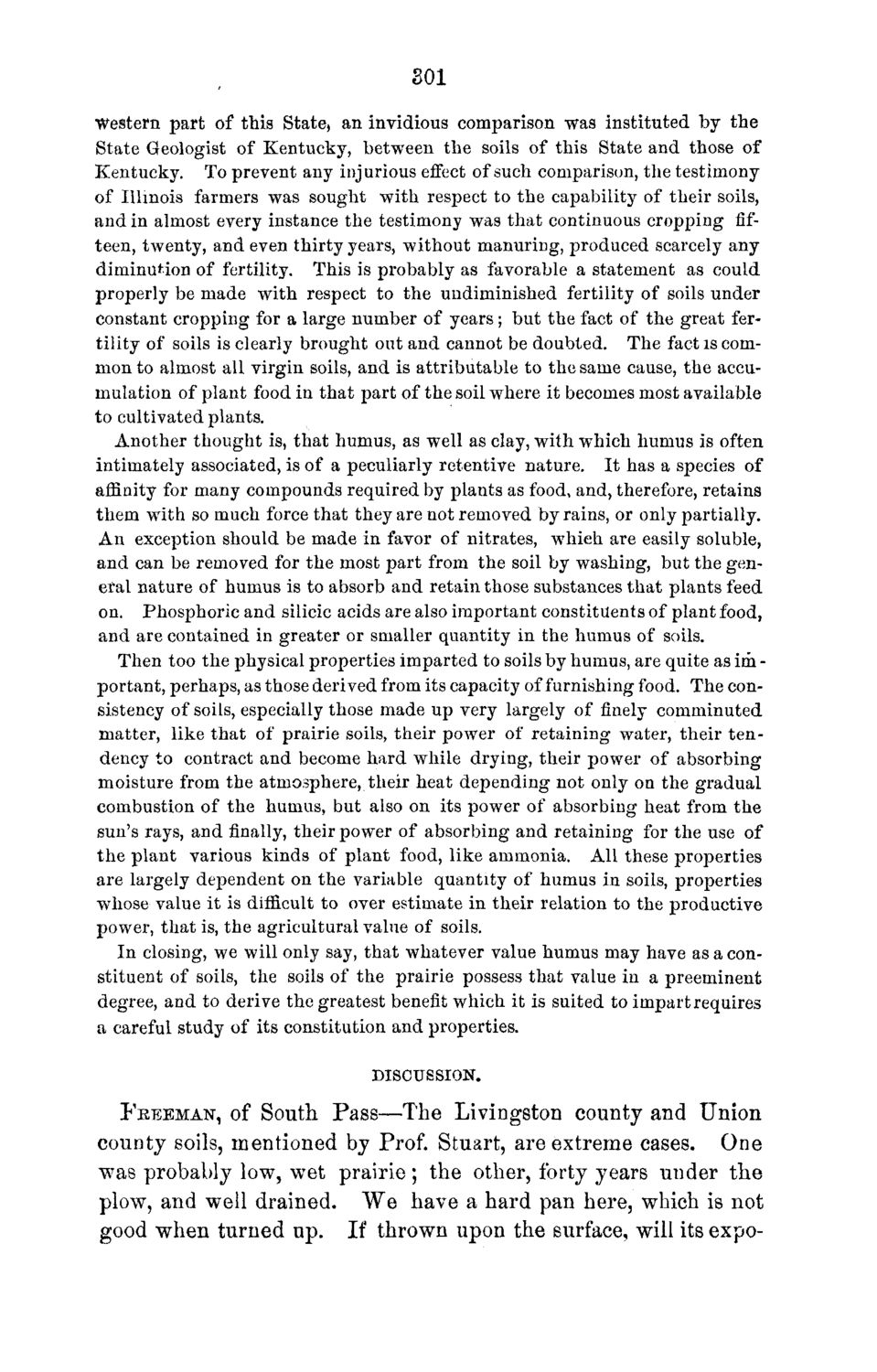| |
| |
Caption: Board of Trustees Minutes - 1870
This is a reduced-resolution page image for fast online browsing.

EXTRACTED TEXT FROM PAGE:
301 Western part of this State, an invidious comparison was instituted by t h e State Geologist of Kentucky, between the soils of this State and those of Kentucky. To prevent any injurious effect of such comparison, the testimony of Illinois farmers was sought with respect to the capability of their soils, and in almost every instance the testimony was that continuous cropping fifteen, twenty, and even thirty years, without manuring, produced scarcely any diminution of fertility. This is probably as favorable a statement as could properly be made with respect to the undiminished fertility of soils under constant cropping for a large number of years; but the fact of the great fertility of soils is clearly brought out and cannot be doubted. The fact is common to almost all virgin soils, and is attributable to the same cause, the accumulation of plant food in that part of the soil where it becomes most available to cultivated plants. Another thought is, that humus, as well as clay, with which humus is often intimately associated, is of a peculiarly retentive nature. I t has a species of affinity for many compounds required by plants as food, and, therefore, retains them with so much force that they are not removed by rains, or only partially. A n exception should be made in favor of nitrates, which are easily soluble, and can be removed for the most part from the soil by washing, but the general nature of humus is to absorb and retain those substances that plants feed on. Phosphoric and silicic acids are also important constituents of plant food, and are contained in greater or smaller quantity in the humus of soils. Then too the physical properties imparted to soils by humus, are quite as im portant, perhaps, as those derived from its capacity of furnishing food. The consistency of soils, especially those made up very largely of finely comminuted matter, like that of prairie soils, their power of retaining water, their tendency to contract and become hard while drying, their power of absorbing moisture from the atmosphere, their heat depending not only on the gradual combustion of the humus, but also on its power of absorbing heat from the sun's rays, and finally, their power of absorbing and retaining for the use of t h e plant various kinds of plant food, like ammonia. All these properties are largely dependent on the variable quantity of humus in soils, properties whose value it is difficult to over estimate in their relation to the productive power, that is, the agricultural value of soils. In closing, we will only say, that whatever value humus may have as a constituent of soils, the soils of the prairie possess that value in a preeminent degree, and to derive the greatest benefit which it is suited to impart requires a careful study of its constitution and properties. DISCUSSION. FREEMAN, of South Pass—The Livingston county and Union county soils, mentioned by Prof. Stuart, are extreme cases. One was probably low, wet prairie; the other, forty years under the plow, and well drained. We have a hard pan here, which is not good when turned up. If thrown upon the surface, will its expo-
| |